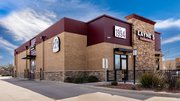Blog
The importance of traceability: Fish fraud sparks food-labeling controversy
Seafood fraud not only affects consumers' wallets, it also has the potential to take advantage of and even damage the reputation of honest vendors and restaurant owners
June 20, 2013 by Betsy Craig — pres, menutrinfo.com
Was the red snapper you just ate really red snapper?
It might not be. The food industry was stunned by results from a recent study that exposed "fish fraud" — mislabeled seafood and fish products — to be surprisingly common in the U.S.
In February of this year, Oceana, an international nonprofit dedicated to ocean conservation, launched a full-scale investigation into seafood fraud in the U.S.
The investigation took 1,251 samples from 674 retail outlets in 21 states to make sure that the fish and seafood was correctly labeled. Shockingly, the investigation found that over one-third of the fish that was DNA sampled was mislabeled according to Food and Drug Administration regulations.
Of the fish samples the organization collected, snapper and tuna were most likely to be misrepresented. In fact, only seven of the 120 samples taken of red snapper were confirmed to truly be snapper. The rest of the samples were actually cheaper, lower-quality fish, intentionally mislabeled as snapper in order to bring higher market prices.
The results were quickly circulated throughout the media, and the U.S. government took notice. In March, Congress introduced the Safety and Fraud Enforcement for Seafood (SAFE Seafood) Act, which will require traceability — from fisherman to table — for all seafood products. The act will fight "fish fraud" and aims to provide consumers with correct information about what they're eating.
So what does this mean for restaurants that serve fish and seafood? Responsible restaurant owners can fight back against this problem by only supplying their restaurants with seafood that comes from a traceable source. Seafood fraud not only affects consumers' wallets, it also has the potential to take advantage of and even damage the reputation of honest vendors and restaurant owners. Consumers have the right to know where their food comes from, and all of us, as food lovers, are affected by this nationwide problem.
In my world, one of menu labeling, it's difficult to provide accurate food labels for diners if the product itself isn't quite what it's made out to be. The shocking revelation that what we're buying and serving might not be what it seems should be enough to push all of us to demand transparency and honesty within the food industry.
About Betsy Craig
To date MenuTrinfo is responsible for menu nutritional information at over 100K US restaurants, food allergy and gluten free ANAB accredited training for hundreds of thousands of food service professionals. AllerTrain is the chosen food allergy training by NEHA providing continuing educational credit hours for those that take and pass its course. Finally, MenuTrinfo delivers food allergy confidence and allergen transparency to today’s food allergic consumer through its onsite division offerings, AllerCheck, Certified Free From allergens for spaces and food products which is an ISO 17065 certification and expert consultation and incident response support when needed.









